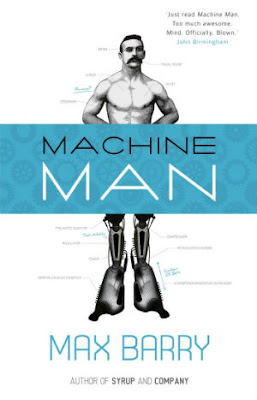What's the word?
I've written almost exclusively about music, as of late. It's not a bad thing, I just feel like I'm getting into a routine. Sometimes you have to switch it up - sometimes you need to change your usual habits so you don't sink into the same old pattern. Ironically I've never been more well read while listening to the least amount of music. Lately I've been throwing myself into novels and articles as fast as I can finish them, while only picking a single musical element to dissect and then posting on it. There was a time when this ratio was inverted - I've always been a voracious reader, it just hasn't always been this indulged.
It feels great, to be honest.
When coupled with posting every day and poking along on a novel I'm slowly finishing, it feels like there is a long dormant muscle in my mind that's finally getting a workout. I may not be as adventurous musically, as I normally am, but I feel much more satisfied from reading more books than organizing and writing about more albums. One of the most enjoyable, bizarre experiences in this latest wave of books has been Machine Man by Max Barry. It was a fast and freaky read, but thoroughly enjoyable every step of the way. Originally the author, in a forward thinking attempt to satisfy his audience's demands, wrote the story as a single page, five days a week, on his blog. This truncated his story greatly but forced him to tell it in a creative, collaborative environment. Readers could comment on and thus inform the plot as it unfolded. Due to the nature of the medium, however, it couldn't be too detailed or engaging, so when he finished the original iteration of the story he went back and revised it to fill in the gaps and flesh it out.
It's a crazy, far out tale. In Machine Man, lab tech and engineer Charles Neumann loses his leg in an industrial accident. When faced with the sad state of prosthetics he had to choose from, he set about designing his own new leg. Unlimited by the constraints of biological necessity, he develops some novel, if intimidating legs as replacement. Unfortunately for Charles, they work better as a pair than as a single leg. Thus begins a harrowing descent into self-amputation, bleeding edge tech and the intellectual property rights and ethical motivations of corporations. By the time you get to the denoumount of the revised novel, you're shaken and disturbed by the journey and subsequent transformation.
This book was an insane ride. I honestly whipped through it in just over three days. I devoured it. Barry's writing style is accessible and human, despite the uncanny subject matter. The intensity and pace of the blog-post pulsing is intact, only with more nuance and subtlety. He took a divergent path from his online version when revising the plot, but it makes no difference in the end - it's a fantastic book, one I would emphatically recommend to anyone remotely interested in scientific progress or tech.































